Environment
Environmental Policy
TOKYU REIT and Tokyu REIM promote environmentally friendly initiatives such as transitioning to a decarbonized society and addressing climate change by promoting energy conservation and using renewable energy and realizing a recycling-oriented society by conserving water and reducing waste, and communicate the status of these activities to investors, etc.
<TOKYU REIT>
|
Environmental Policy Issue Date: March 2014 1.Background and Objectives 2.Environmental Policy 2.2 Management Structure to Ensure Environmental Consideration |
<Tokyu REIM>
Please refer to this page, about the Environmental Policy.
Reduction of Energy Consumption and Greenhouse Gas (“GHG”) Emissions
◆Set target


◆Environmental Performance Data (Energy & Greenhouse Gas Emissions)
*The figures for Energy consumption and GHG emissions are counted for each fiscal year from February to January of the following year.*In principle, all the above figures are for the entire real estate portfolio each fiscal year excluding land with leasehold interests, with co-ownership or compartmentalized interests calculated by percentage owned.
*Energy consumption is calculated for the portion of the portfolio over which TOKYU REIT has management rights, while the figures in parentheses are actual figures including tenant emissions.
*Gas consumption data that is difficult to aggregate, such as data from direct tenant contracts, is partially excluded.
*Consumption rate is calculated as follows: Consumption rate = consumption ÷ (gross floor area (weighted average of number of days held during the period) × ownership interest × average annual occupancy rate)
*Gross floor area in the consumption rate excludes property portions for which data is difficult to aggregate (e.g., residential portions, etc.)
*Scope 1 is city gas used in common areas, Scope 2 is electricity, water and steam used in common areas and Scope 3 is electricity, water and city gas used in exclusive areas and those contracted directly to tenants.
*“-offset” refers to the GHG offset portion of GHG emissions resulting from the use of FIT non-fossil certificates or the introduction of green electricity.
*Data marked with an asterisk (※) have received limited verification by an independent third party.
◆Introduction of 100% renewable energy
Introduced 100% renewable energy at 78.2% (27 properties) of the total floor area (Note) of all the 30 properties under management excluding land with leasehold interest (as of the end of January 2024)
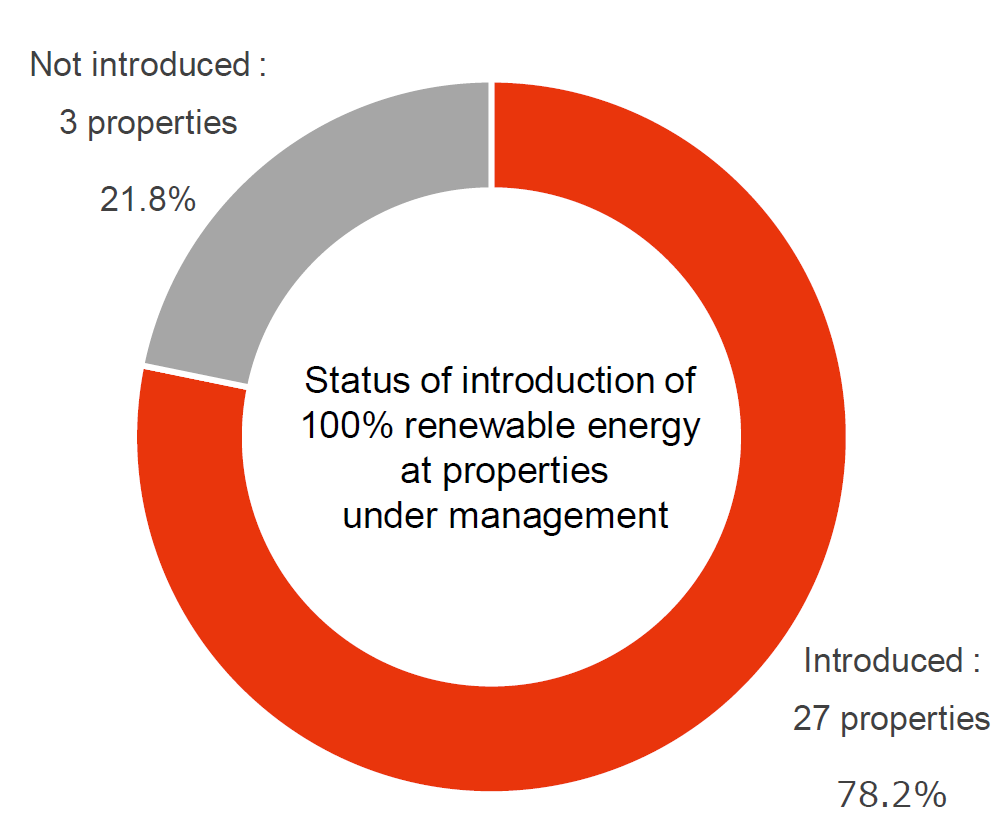
(Note) The figures are calculated by using the exclusive area based on ownership ratio when part of the ownership interest is held at buildings under compartmentalized ownership and the total floor area or exclusive area based on ownership ratio when part of the ownership interest is held at co-owned properties.
◆Major initiatives
- Major construction work related to reduction of energy consumption
(fiscal period ended July 2023 (FP 40) & fiscal period ended January 2024 (FP 41))
・Renewal of air conditioning equipment
(TOKYU REIT Omotesando Square, CONZE Ebisu, Tokyo Nissan Taito Building, TOKYU REIT Toranomon Building, Akihabara Sanwa Toyo Building, Shibuya Dogenzaka Sky Building, Futako Tamagawa Rise)
・Switching to LEDProgress rate of switching to LED at exclusively owned office area
(Based on total leasable area)89.3%
- Installation of charging station for electric vehicles
(Tokyu Toranomon Building)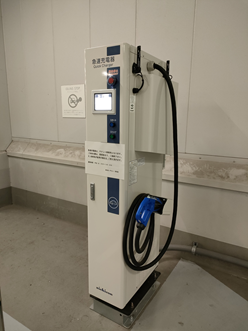
- Energy conservation diagnosis
Implemented/Discussed measures to improve management based on the results of the energy conservation diagnosis by external business operator.
(TOKYU REIT Shinjuku Building)
- Response to related laws and regulations
Submitted the “Report on Countermeasures Against Global Warming of Minato-ku” for the relevant properties based on the “Ordinance on Promotion of Low Carbonization of Buildings Protecting the Living Environment of the Residents of Minato-ku” of Minato-ku, Tokyo.
(TOKYU REIT Toranomon Building, Tokyu Toranomon Building)
*Please refer to this page, about notification details and overview of the Report on Countermeasures Against Global Warming of Minato-ku (Japanese).
Promotion of Water Conservation and Waste Reduction
◆Set target

◆Environmental Performance Data (Water & Waste Management)
*The figures for Water consumption is counted for each fiscal year from February to January of the following year, Waste production figures is April to March of the following year.*In principle, all the above figures are for the entire real estate portfolio each fiscal year excluding land with leasehold interests, with co-ownership or compartmentalized interests calculated by percentage owned.
*Water consumption is calculated for the portion of the portfolio over which TOKYU REIT has management rights, while the figures in parentheses are actual figures including tenant emissions.
*Consumption rate is calculated as follows: Consumption rate = consumption ÷ (gross floor area (weighted average of number of days held during the period) × ownership interest × average annual occupancy rate)
*Gross floor area in the consumption rate excludes property portions for which data is difficult to aggregate (e.g., residential portions, etc.).
*Data marked with an asterisk (※) have received limited verification by an independent third party.
◆Major initiatives
- Implementation of construction work to reduce water consumption
(fiscal period ended July 2023 (FP 40) & fiscal period ended January 2024 (FP 41))
・Renovation of restrooms
(TOKYU REIT Shinjuku 2 Building, TOKYU REIT Ebisu Building, Futako Tamagawa Rise)
Environmental Risk Assessment When Acquiring Properties
As part of the due diligence carried out for property acquisition, along with a site survey and disclosure of documents from the owner, Tokyu REIM obtains engineering reports and the like prepared by third parties with suitable survey-related expertise and experience to verify the presence of toxic substances, including asbestos, soil pollution, water pollution, use of equipment containing PCB and use of CFC and halon gas. In addition, if required based on the environmental risks, more detailed additional surveys will be carried out.
Introduction of Green Leases
As a rule, TOKYU REIT includes green lease provisions in newly concluded lease agreements, working to reduce its environmental footprint in collaboration with tenants and PM companies. Green lease provisions stipulate that the parties shall work together to improve properties’ environmental performance and maintain/enhance comfort and productivity by sharing energy consumption data, obtaining environmental certifications, procuring resources used at properties in a sustainable manner (Note 1), reducing waste, etc.
|
Green lease introduction rate |
78.3% |
(Note 1) This refers to procuring products with a low environmental footprint (e.g., recycled paper, easily biodegradable materials).
(Note 2) This figure shows the percentage of green leases among newly signed leases (including amendment memorandums) during the fiscal period ended January 2024 (41st fiscal period), based on the number of leases (excluding Futako Tamagawa Rise and residential sections).
Preserving Biodiversity
At Futako Tamagawa Rise, as part of our aim to pursue urban development in harmony with the surrounding area’s abundant natural environment, we have developed open areas with water and greenery, including rooftop greening of a large-scale facility. Employing a design inspired by the Tama River’s fluvial terrace and the Todoroki Ravine, we established a roof garden of around 6,000 m2 on the upper section of a low-rise building, and spaces where users can enjoy the verdant nature are provided throughout the complex.
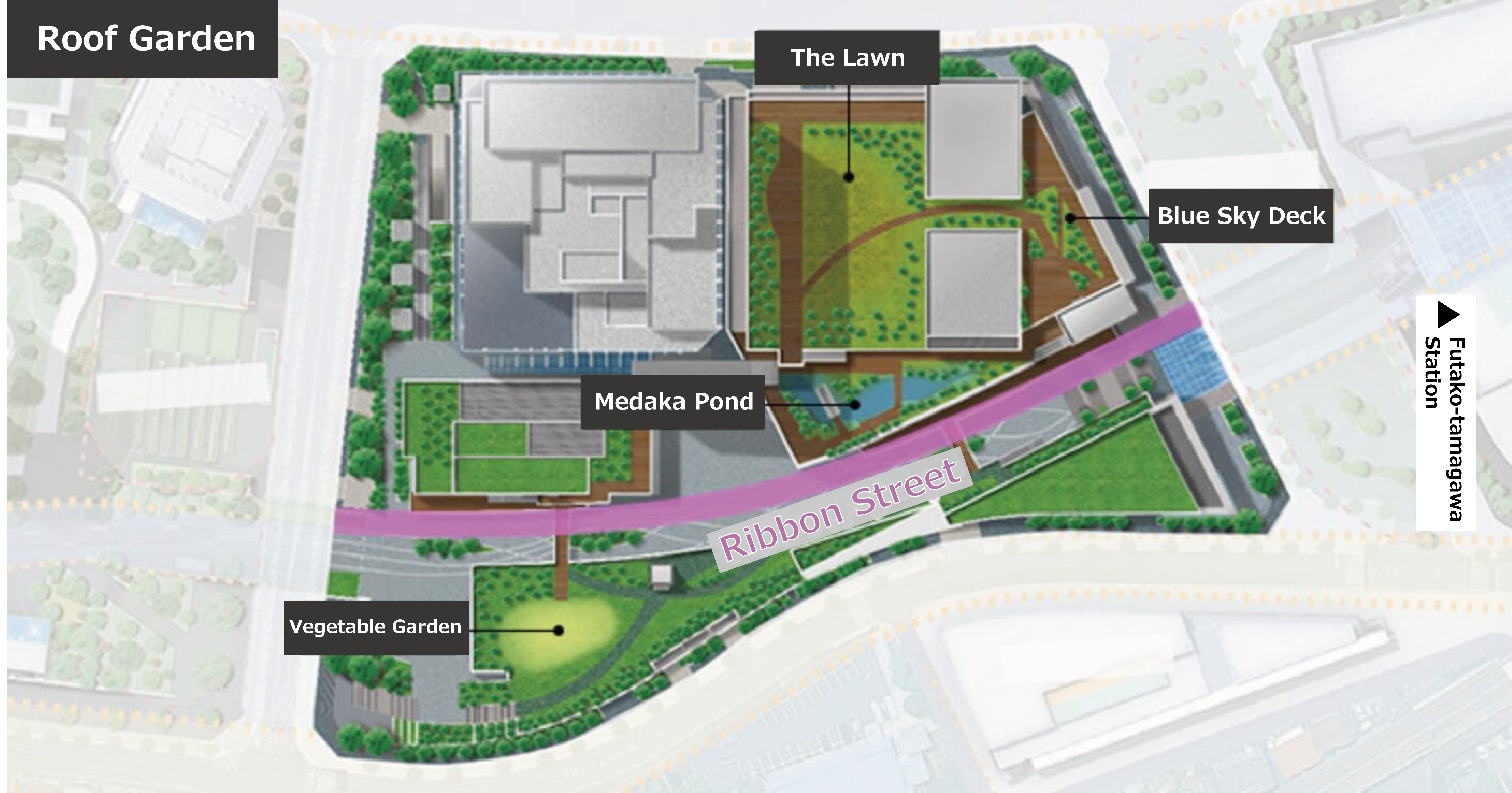
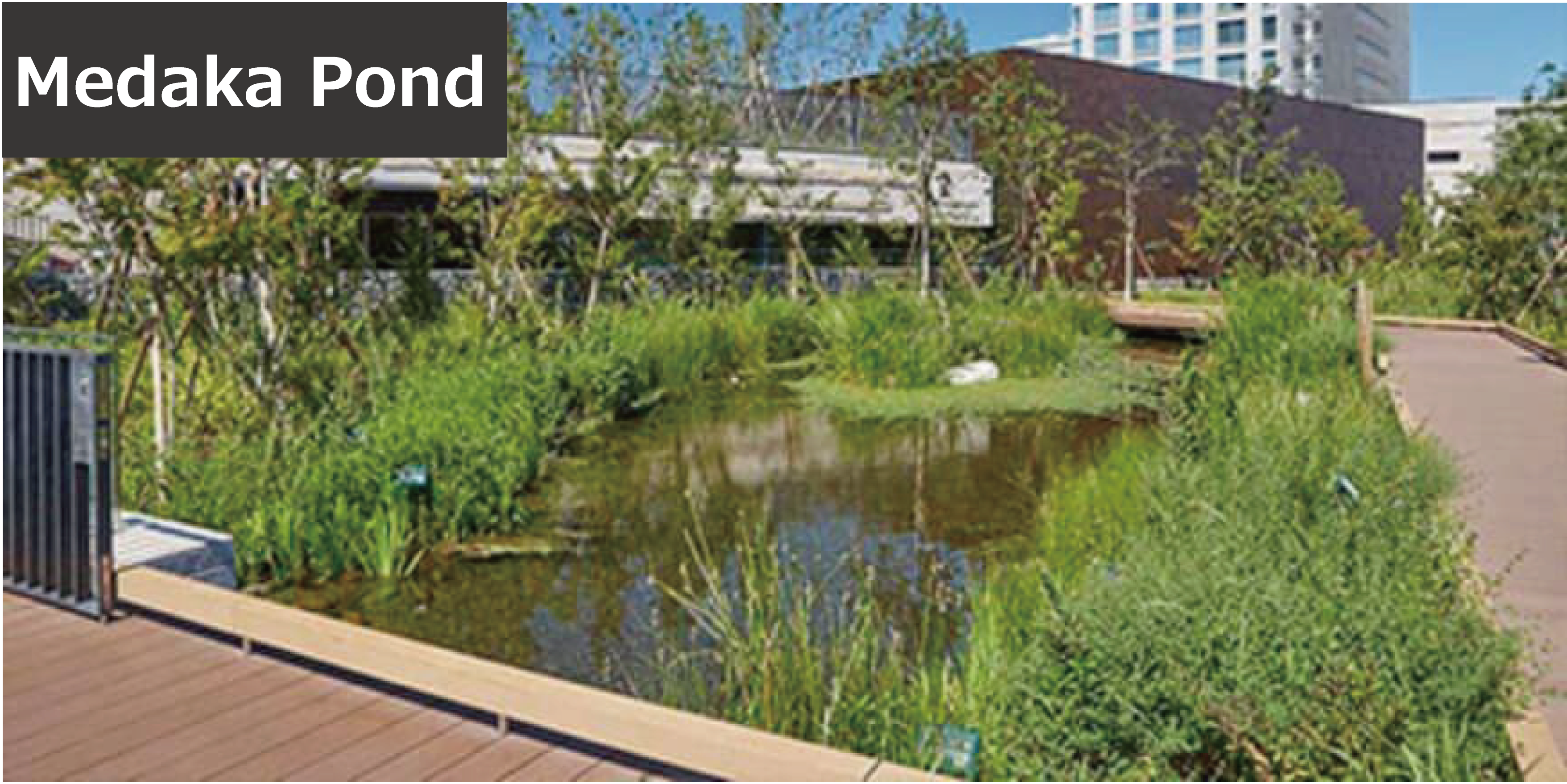
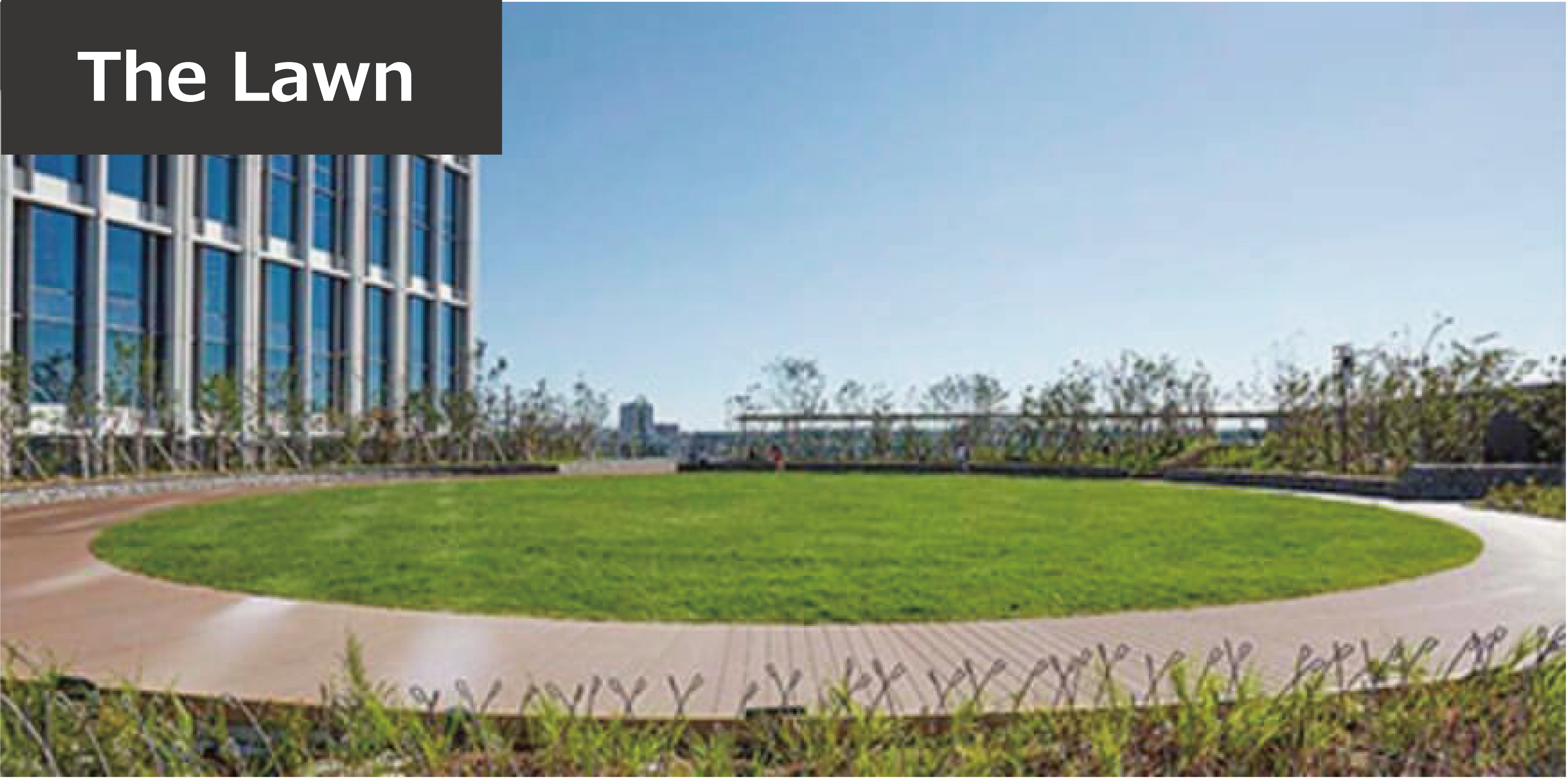
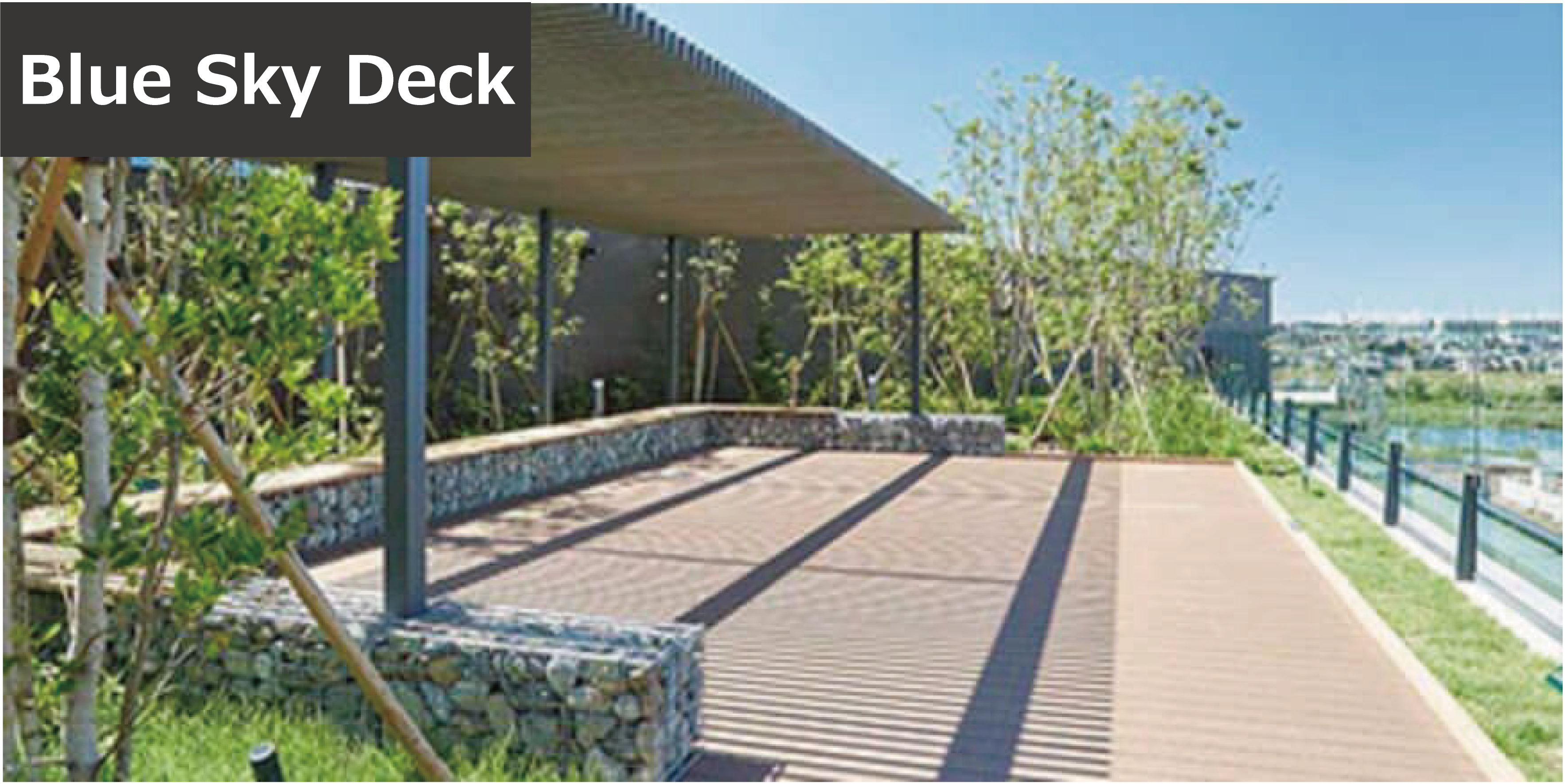 ©Futakotamagawa Rise
©Futakotamagawa Rise
Please refer to this page, about environmental initiatives at Futako Tamagawa Rise.
Please refer to this page, about acquisition of JHEP certification.
Urban Development-Related Initiatives
◆Investing in Properties Developed Via Urban Redevelopment Projects
TOKYU REIT contributes to the revitalization of target communities through investing in properties developed via urban redevelopment projects.
-
Example Initiative (Futako Tamagawa Rise)
Futako Tamagawa Rise is a mixed-use facility including retail, office, hotel, and residence sections developed via an urban redevelopment project pursued over many years by the relevant rights holders in the area around Futako-tamagawa Station, Tokyu Corporation and Tokyu Land Corporation. With the number of riders embarking and disembarking at the station having increased considerably, the Futako Tamagawa area is expected to develop further as a district that combines working, living, and entertainment. Along with greening around 10,000㎡ across the entire site, the redevelopment project has considered harmony with nature and environment/sustainability issues. This includes becoming the first property in the world to acquire Gold certification in the LEED ND (Neighborhood Development category). With the aim of enhancing the area brand and making it more dynamic, town management is carried out in collaboration with the community. Through holding various events using public spaces, improving the townscape, and participating in community activities, the project is contributing to the vitalization of the Futako Tamagawa area. Since 2023, TOKYU REIT has pursued town management activities as one of the property owners.Please refer to this page, about the history of Futako Tamagawa Rise and an overview of its development.
Please refer to this page, about Futako Tamagawa Rise’s town management initiatives.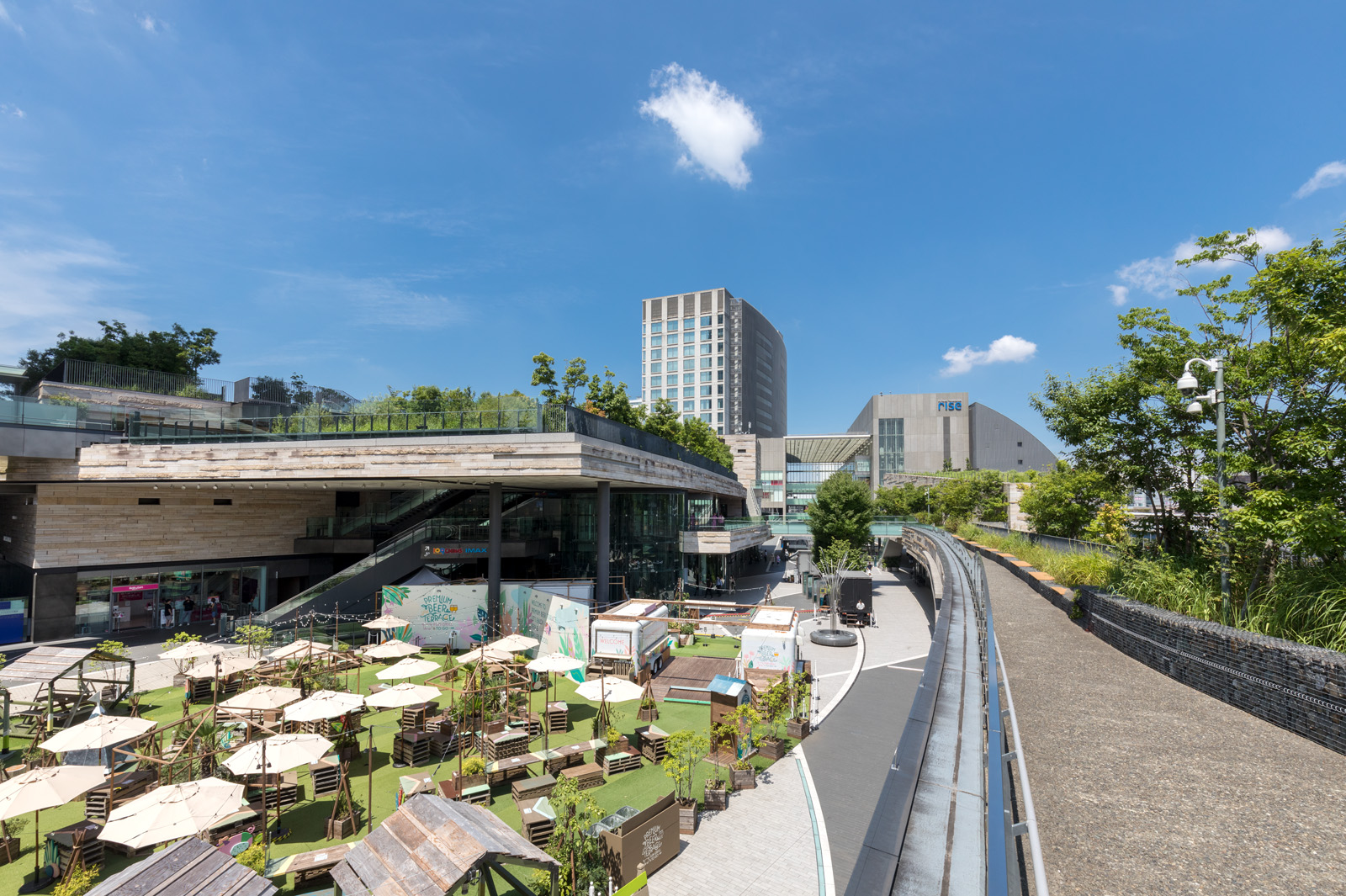
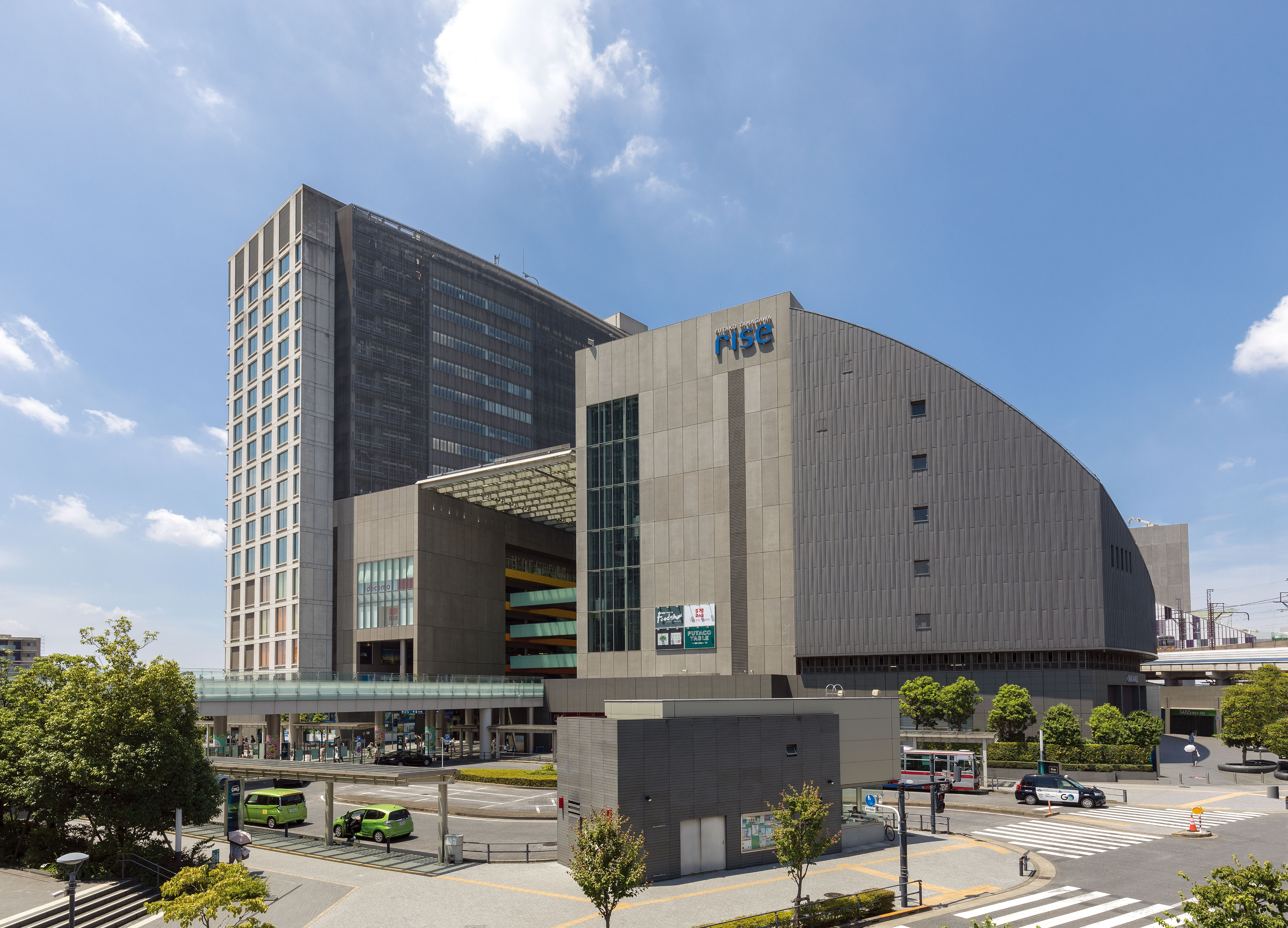
Including Futako Tamagawa Rise mentioned above, TOKYU REIT’s sponsor Tokyu Corporation is engaged in the development of large-scale, mixed-use facilities and urban development by participating in urban redevelopment projects, urban renewal projects, and land readjustment projects centering on areas along Tokyu Railway lines.
◆Investing in Redevelopment in Existing Development Areas
TOKYU REIT invests in redevelopment properties in existing development areas after carefully verifying factors such as handling of soil pollution risks and compliance with environmental laws and regulations. Extension work at Tokyu Toranomon Building, completed in June 2022, was carried out after eliminating polluted soil.
◆Approach to Development of Undeveloped Sites
TOKYU REIT invests in development properties on undeveloped sites after considering factors such as the impact of the development activities on the natural environment and ecosystem, compliance with environmental laws and regulations and acquisition of environmental certifications.
The Sponsor’s Environmental Initiatives
◆Tokyu Group’s Environmental Vision 2030
- Overview of Concept for Towns in Harmony with the Environment
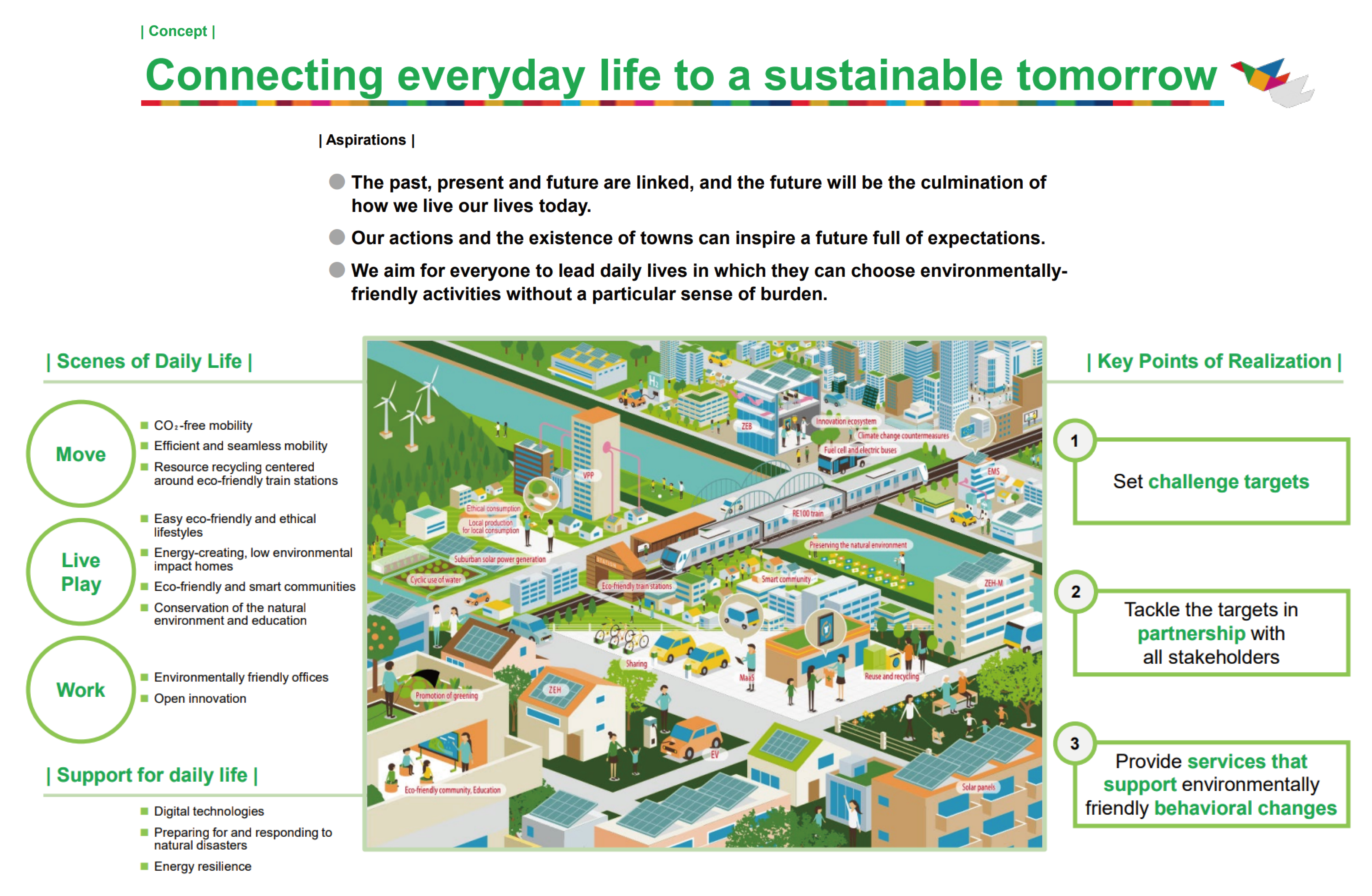
- Initiative Targets (Decarbonized/Recycling-Oriented Society)
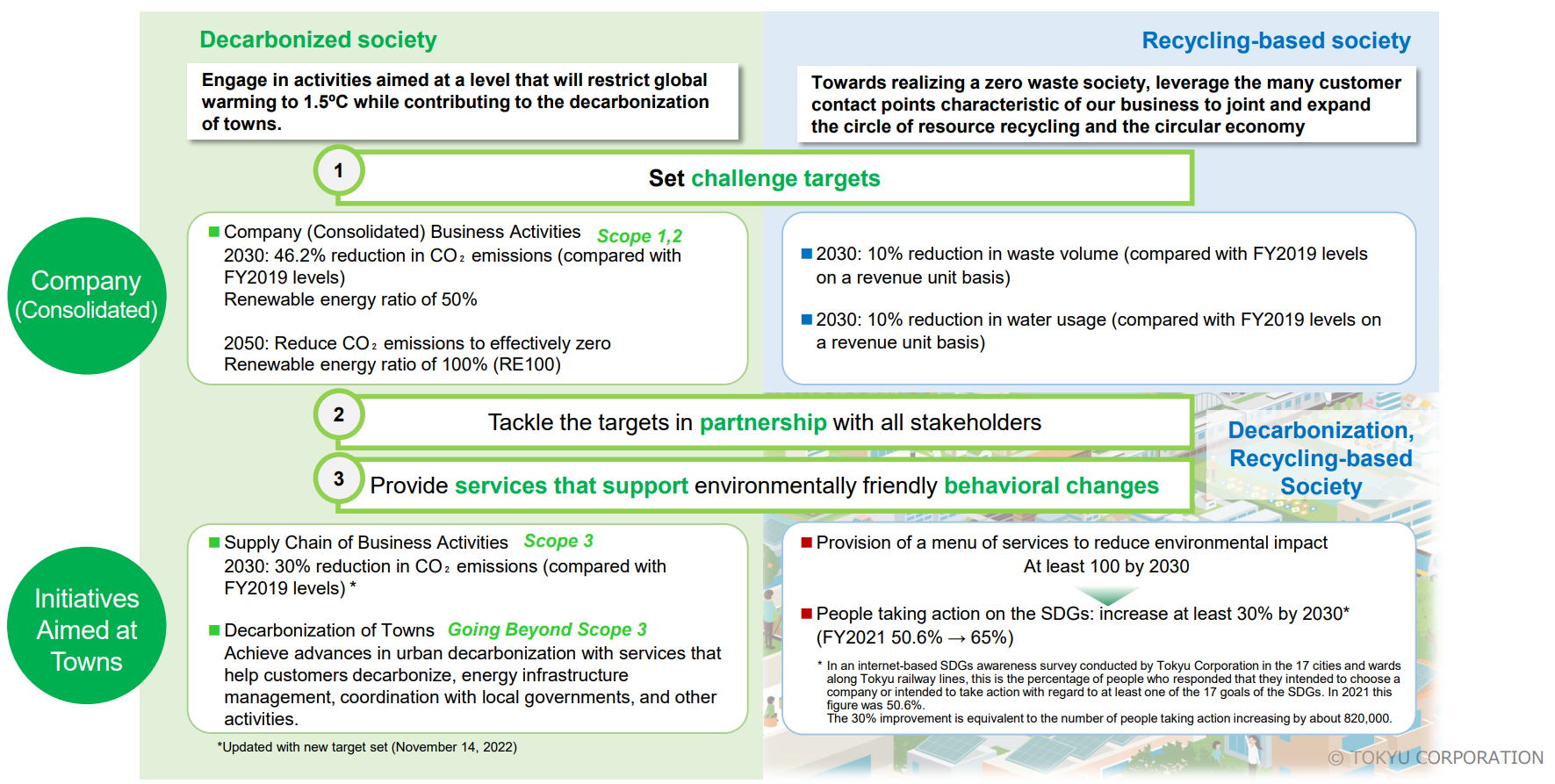
Please refer to this page, about the Environmental Vision 2030.
